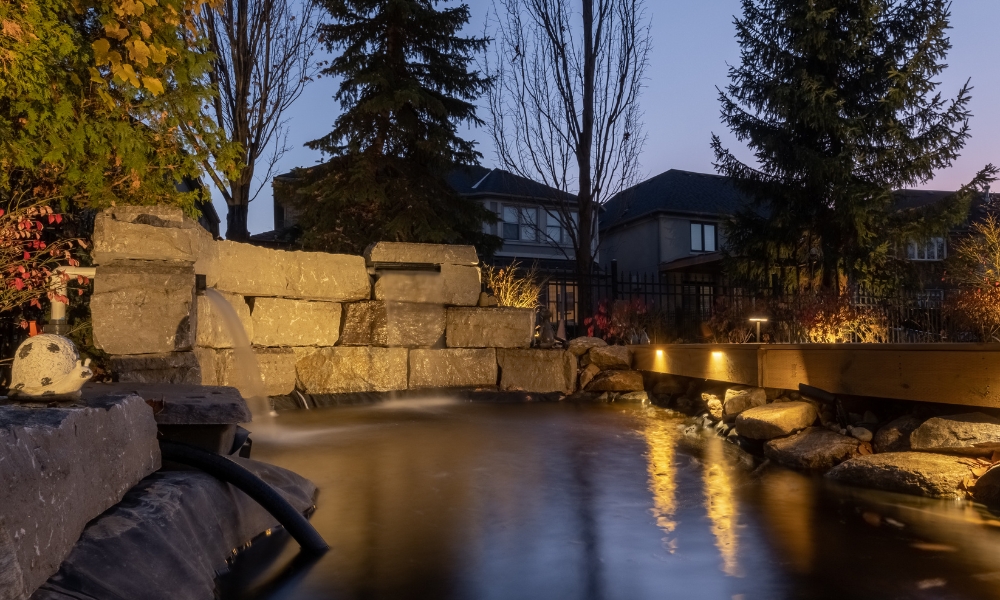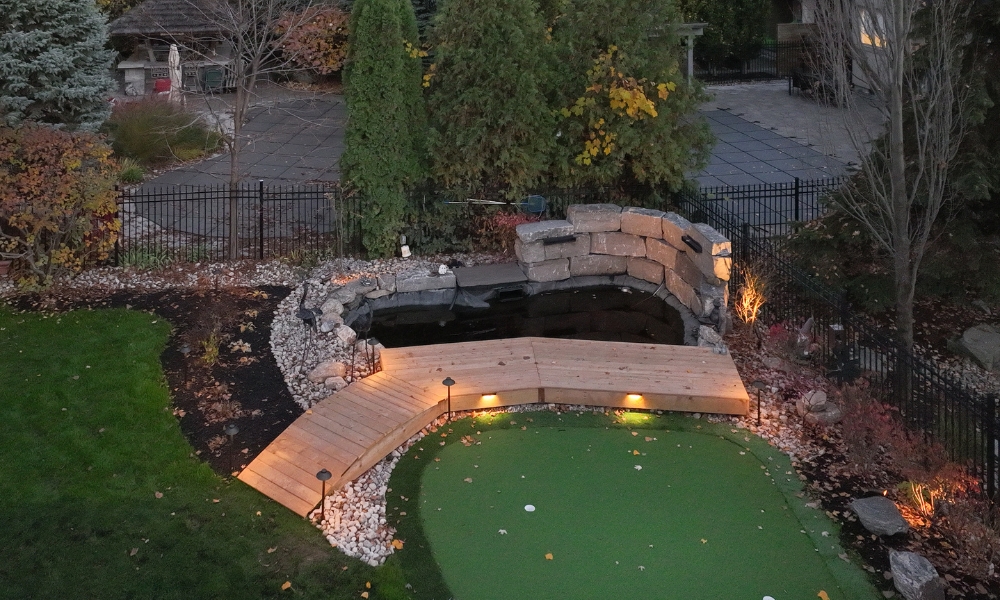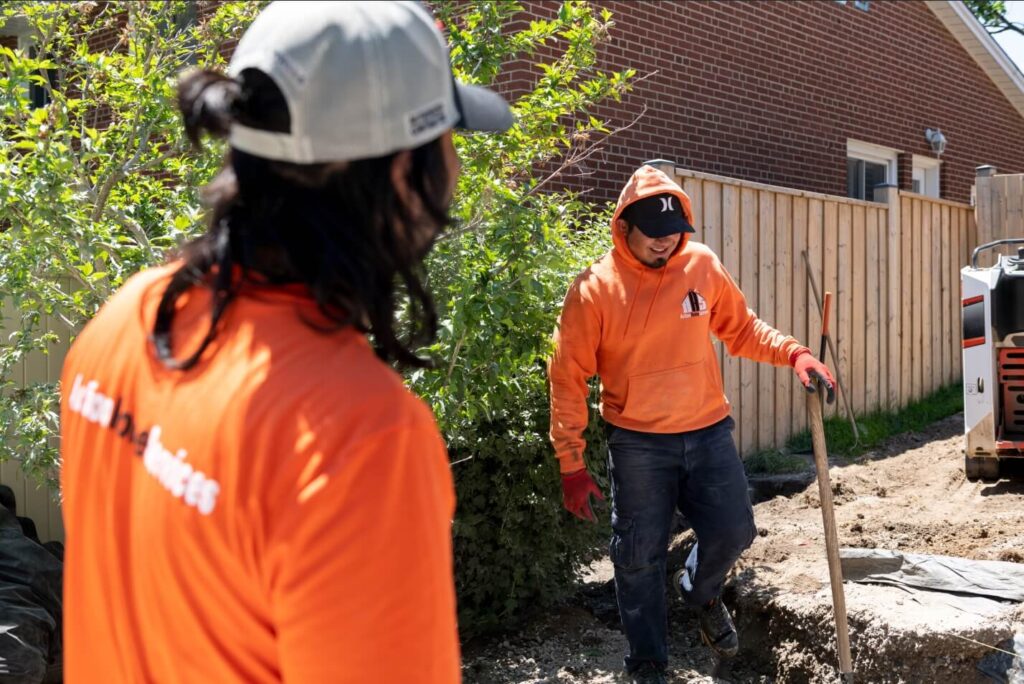Retaining walls are not just functional structures; they are the backbone of your landscape’s stability and aesthetics. Whether you need to control erosion, level a sloped yard, or enhance your garden’s visual appeal, retaining walls can be a transformative addition to your property. However, achieving a successful retaining wall project requires expertise, and that’s where retaining wall contractors come into play.
In this blog, we’ll delve into the world of retaining wall projects and how to understand the competence of retaining wall contractors through their work.
Content

Source: Retaining Wall Contractor
1. The Purpose of Retaining Walls
Before we dive into the importance of hiring the right contractor, let’s briefly understand why retaining walls are such crucial elements in landscaping:
a. Erosion Control: Retaining walls help prevent soil erosion, which can occur due to rain, wind, or the natural slope of your land. They hold the soil in place, protecting your property from potential damage.
b. Leveling and Terracing: Retaining walls can be used to level out uneven terrain, creating flat, usable spaces for gardens, patios, or play areas.
c. Aesthetic Enhancements: These walls can be beautifully designed and constructed using various materials, adding a visually appealing element to your landscape.

Source: Retaining Wall Contractor
2. The Role of Retaining Wall Contractors
Now, let’s explore the role of retaining wall contractors in bringing these benefits to life:
a. Design Expertise: Experienced contractors have an eye for design. They can assess your landscape and suggest the best type, style, and placement of retaining walls that not only serve their functional purpose but also enhance the overall aesthetics of your property.
b. Structural Integrity: Retaining walls need to be structurally sound to withstand the pressure of the soil they are holding back. Contractors ensure that the wall’s construction is strong and durable.
c. Material Selection: Contractors are well-versed in different wall materials, such as concrete blocks, stone, or wood. They help you choose the right material that aligns with your design preferences and the wall’s function.
d. Drainage Considerations: Proper drainage is critical for the longevity of retaining walls. Contractors plan and install drainage systems that prevent water buildup behind the wall, reducing the risk of damage.
e. Permits and Regulations: In many cases, retaining wall projects require permits and adherence to local regulations. Contractors are knowledgeable about these requirements and can handle the paperwork on your behalf.

Source: Retaining Wall Contractor
3. Evaluating Retaining Wall Contractors Through Their Work
Now, let’s discuss how you can assess the competence of retaining wall contractors based on their previous projects:
a. Portfolio of Past Projects: A reputable contractor should have a portfolio of past retaining wall projects. Review these to gauge their design aesthetics, craftsmanship, and attention to detail. Look for a variety of projects to assess their versatility.
b. Client Testimonials: Reach out to previous clients or check online reviews to get insights into their experiences with the contractor. Did the contractor meet deadlines, stay within budget, and deliver on their promises?
c. Inspect Completed Walls: If possible, physically inspect some of the completed retaining walls in the contractor’s portfolio. Pay attention to the quality of construction, the precision of alignment, and the overall appearance.
d. Ask About Challenges: Inquire about any challenges the contractor faced during past projects and how they overcame them. This will give you a sense of their problem-solving skills and adaptability.
e. Request References: Don’t hesitate to ask the contractor for references that you can contact directly. Speaking with past clients can provide valuable insights into their work ethic and professionalism.
4. The Importance of Communication
Effective communication is a vital aspect of a successful retaining wall project. When evaluating contractors, pay attention to how they communicate with you during the initial consultation:
a. Active Listening: A good contractor will listen attentively to your ideas, concerns, and goals for the project. They should be willing to incorporate your vision into the design.
b. Transparency: Transparency in discussing costs, timelines, and potential challenges is a sign of a trustworthy contractor. They should provide you with a clear project proposal.
c. Responsiveness: Prompt responses to your queries and concerns indicate that the contractor values your time and the project’s progress.
d. Collaboration: A contractor should be open to collaboration and should be willing to provide explanations and recommendations when necessary.
5. Cost Considerations
While it’s important to stay within budget, remember that quality work often comes at a higher price. When evaluating contractors, be cautious of significantly low bids, as they may lead to compromises in the quality of materials or workmanship. A reputable contractor will provide a fair and competitive estimate based on the scope of the project.
Retaining wall projects can significantly enhance the beauty, functionality, and value of your property. However, to ensure a successful project, it’s crucial to hire the right retaining wall contractor. By evaluating their past work, communicating effectively, and considering cost factors, you can make an informed decision and choose a contractor who can turn your retaining wall project into a stunning reality. Remember, when you invest in a skilled and experienced contractor, you’re investing in the long-term durability and aesthetic appeal of your landscape.

I am Javier and my love is writing about home improvement. I write mostly about home ideas, but also share some tips and tricks that can make your life easier when it comes to getting things done in the house.
